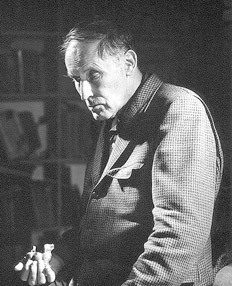Arthur David Schloss was born on this day in 1889, in Tunbridge Wells, Kent, England. He assumed his mother’s maiden name, Waley, during the first world war. There appear to be two reasons for this. The presenting issue is nicely conveyed in an anecdote he once told about being followed by boy scouts and then reported to the police as a possible German spy. In this regard he and his family were following a pattern among many English of German ancestry at that time. However, his family was not simply German, but Jewish. And, such name changes were also common among those attempting to avoid the pervasive and often casual anti-semitism of the day.
But, this gets a bit ahead of the story. In 1907, while still Schloss he entered Cambridge, reading classics. However, he left without a degree, apparently having eye problems. He worked briefly for an export firm, but then in 1913 was appointed Assistant Keeper of Oriental Prints and Manuscripts at the British Museum. Apparently largely in order to be able to catalog various objects he set about to learn classical Japanese and Chinese.
He took the subjects like the proverbial duck to water. He was also a younger member of the Bloomsbury group, and Ezra Pound helped get some of his early work published. Soon translation began to overtake all else. Waley’s translations of poetry and sacred texts would often be the first versions available to English-speaking readers. He was particularly honored for his translations of poetry, which were considered poetic masterpieces in their own right.
Waley left the museum in 1929 and except for a brief period during the second world war where he worked for the government, he devoted his life to translation of classic Chinese and Japanese texts.
He would be wildly honored for his work, which included, using Wikipedia’s listing, “A Hundred and Seventy Chinese Poems (1918), Japanese Poetry: The Uta (1919), The No Plays of Japan (1921), The Tale of Genji (published in 6 volumes from 1921–33), The Pillow Book of Sei Shōnagon (1928), The Kutune Shirka (1951), Monkey (1942, an abridged version of Journey to the West), The Poetry and Career of Li Po (1959) and The Secret History of the Mongols and Other Pieces (1964). Waley received the James Tait Black Memorial Prize for his translation of Monkey, and his translations of the classics, the Analects of Confucius and The Way and Its Power (Tao Te Ching), are still in print, as is his interpretive presentation of classical Chinese philosophy, Three Ways of Thought in Ancient China (1939).”
A little factoid people like to add in about him is that Waley never traveled to Asia, in fact, I’m having a little trouble finding whether he ever left England in his life time. In an era where ever more accurate translation is being done, Waley continues to command respect within the scholarly community. Something rare, indeed.
I know my first attempts at understanding the Dao de Jing, in my time in the Wade Giles rendition, the Tao Te Ching, was vastly helped along by his voluminous commentary on his own translation. Although I also recall feeling a whiff of hubris when he explained while other translators may have captured our contemporary understanding of the text, we needed his version if we wished to understand what the author(s) originally meant.
In any case, a great gift in the bridging of east and west.
Like many others, I’m so grateful that he lived, and for the gifts he brought us all.













